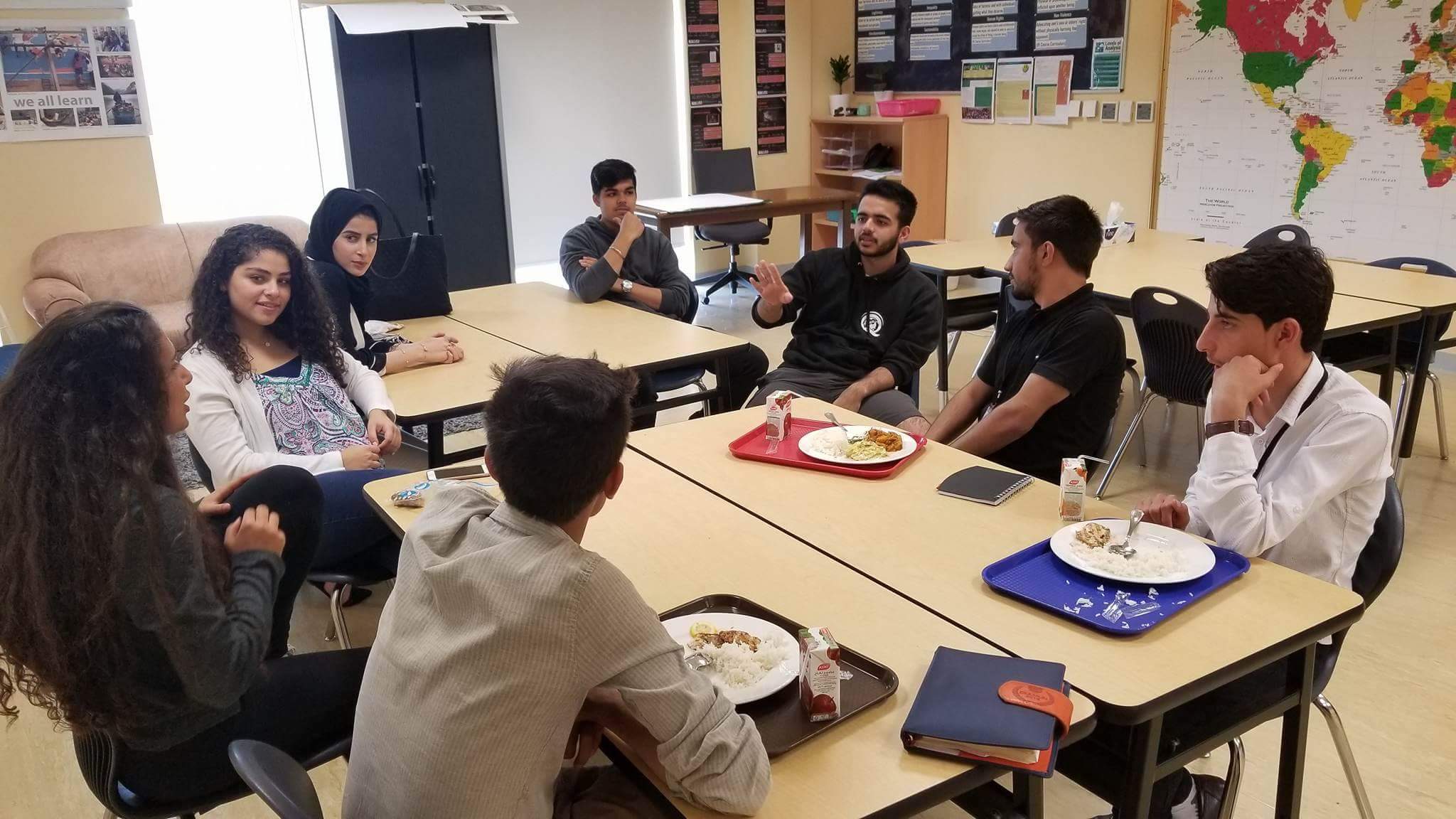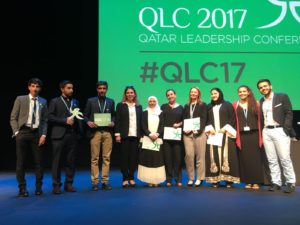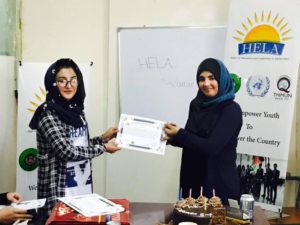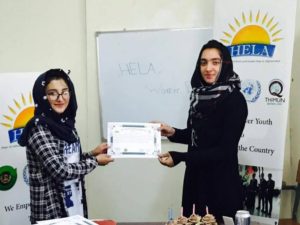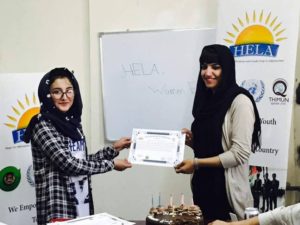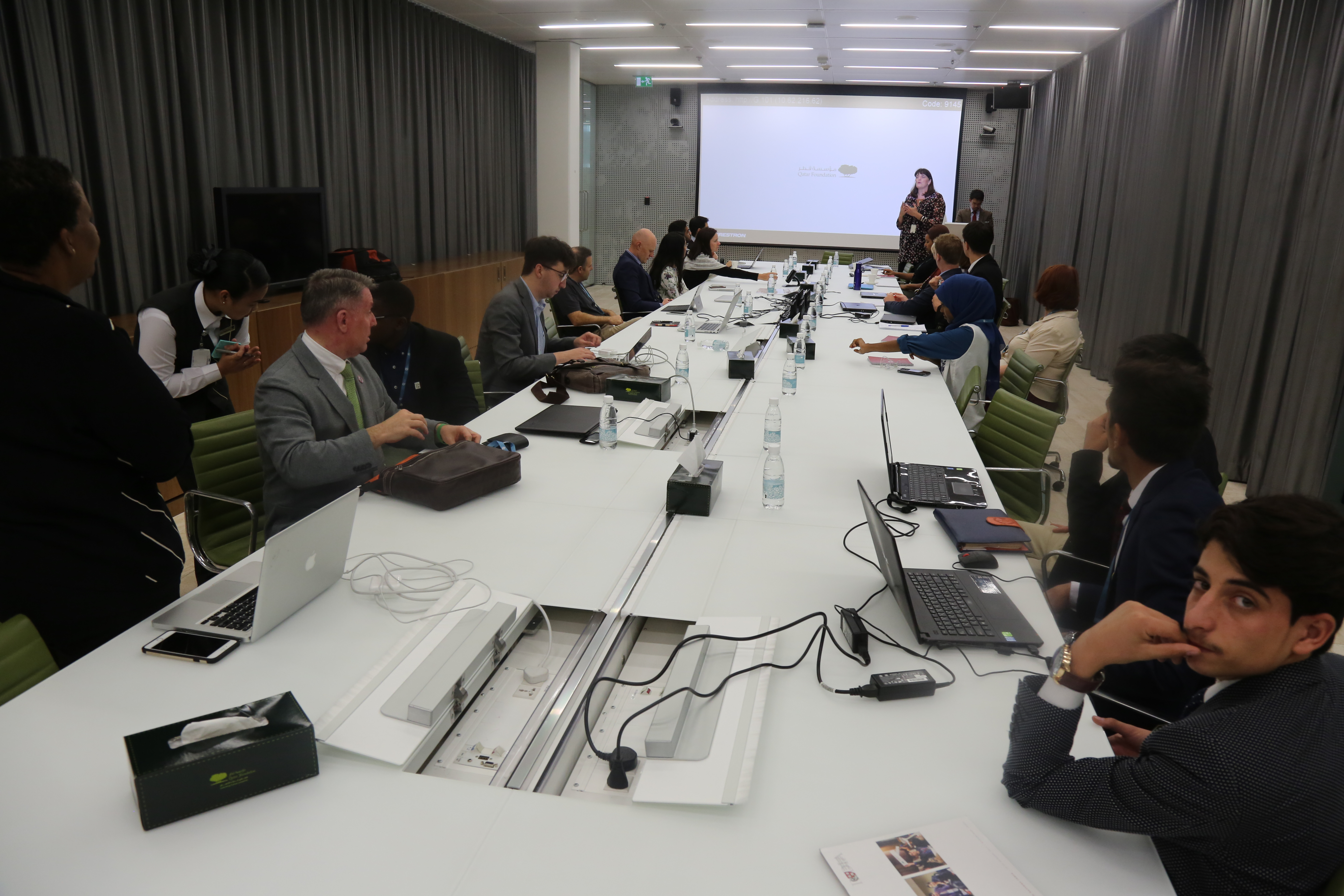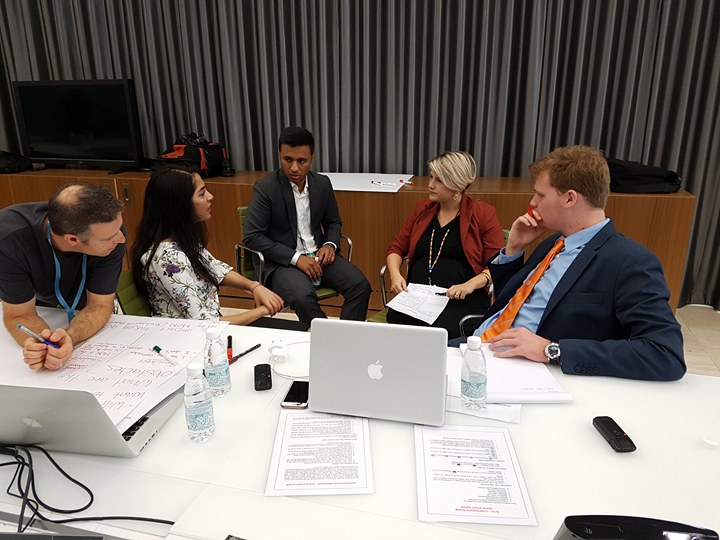By Nikunj Agarwal, Worldview Staff
_______________________________________________________________________________
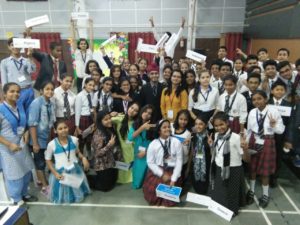
High School Model UN in India is about a couple of decades old. In the past decade, there has been an explosion in the number of participants, and, consequently, in the number of conferences that are hosted in the country each year. Now almost every large school, college and university hosts its own annual conference, and the participation numbers are only growing.
Unfortunately, however, this trajectory has carried with it a large shift from the core values of Model UN. The focus on collaboration and knowledge sharing has been lost to extreme and fierce competition, boosted by increasingly aggressive debate and delegates. The overall quality of the learning experience has also deteriorated, due to an absence of knowledge leadership and consolidated approach. Meanwhile, the rapidly increasing number of conferences hosted with very little Model UN experience has also led to many of them having to offer extravagant social events, fantastical committees and – in certain cases – huge monetary awards, in a bid to attract more delegates.
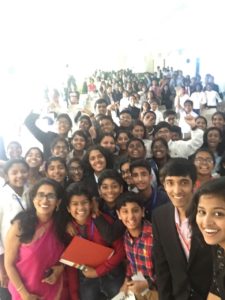 Finally, the explosion of Model UN has also meant that more and more delegates, faculty, schools and even parents, now view Model UN as a checklist item on students’ profiles and do not, instead, focus on the students’ growth and learning. Many students attend over 10 conferences each year in an attempt to outdo their peers, but few truly use the platform as a stepping stone.
Finally, the explosion of Model UN has also meant that more and more delegates, faculty, schools and even parents, now view Model UN as a checklist item on students’ profiles and do not, instead, focus on the students’ growth and learning. Many students attend over 10 conferences each year in an attempt to outdo their peers, but few truly use the platform as a stepping stone.
‘MUN for India’, an initiative by Worldview, is a refreshing effort to counter these challenges, by redefining the accessibility, quality and scope of Model UN in the country. The initiative comprises a series of free-of-cost local Model UN conferences that are being hosted in collaboration with local schools around the country. The series is already underway, having engaged over 1000 students across six conferences so far.
Worldview, through its initiative called MUNCafé, has been an early pioneer of Model UN and is responsible for some of the country’s respected high school conferences including Harvard MUN India, Ivy League MUN Conference India, and WFUNA International MUN India. Armed with the experience of hosting such conferences, and having witnessed the breadth of Model UN around the world, the organization felt the need to introduce such an initiative, which was officially launched on September 25 – the day that the global goals were adopted two years ago.
 This initiative represents a radical shift in Model UN for India in that it is focused on empowering delegates, faculty members, parents and schools by providing knowledge leadership and learning resources, while building a new generation of delegates who view Model UN for what it is: a learning platform to improve one’s skills and awareness, share ideas and knowledge, build innovative solutions, and create a positive impact.
This initiative represents a radical shift in Model UN for India in that it is focused on empowering delegates, faculty members, parents and schools by providing knowledge leadership and learning resources, while building a new generation of delegates who view Model UN for what it is: a learning platform to improve one’s skills and awareness, share ideas and knowledge, build innovative solutions, and create a positive impact.
Worldview believes that platforms like Model UN must necessarily engage the current generation – Gen Z – and must afford them opportunities to develop their leadership skills. The incidence of impact must also gradually shift from mere awareness creation, to inspired and active solution building. It is only by becoming a Generation of Solvers – Gen S – that the youth can define the future of the country, and the world.
The conference series carries no registration cost, and is largely hosted in non-metropolitan cities to offer opportunities that transcend barriers of income and geography. Further, the initiative upholds international standards and quality, besides focusing on the training and development of not only the students, but also the faculty advisers, through immersive workshops and leadership forum sessions.
Thus far, the initiative has hosted workshops and lectures from the likes of the Georgetown International Relations Association, Coca-Cola India, The Takshashila Institute, the Guriya Foundation, Utkarsh Microfinance, and more, besides hosting distinguished educators, speakers and local changemakers. Such knowledge partnerships have helped not only in maintaining international quality standards, but also in expanding the Model UN ecosystem to include more stakeholders, especially from the areas of sustainable industry, education and non-governmental organizations.
Instead of paying a fee, delegates are encouraged to commit their time and knowledge towards creating a positive impact on their immediate communities, especially under the umbrella of the sustainable development goals. For instance, delegates may choose to translate the global goals into their mother tongue or local language as part of the SDG Translation Challenge, to create greater awareness. As part of the registration process, delegates also pledge to personally adopting any goal that they are most passionate about. The conference agendas also reflect the global goals closely, and revolve around the themes of poverty, gender, water, sanitation, climate change, and food security.
 The response from delegates, faculty and schools for the initiative has been overwhelming, and the host schools have been extremely supportive of the vision, committing not only their resources but also, and more importantly, their time to in elevating the overall experience. The scope for such an initiative is vast, and seemingly unlimited, as it travels to different cities across the country, producing in its wake, a new generation of delegates and kick-starting a bottom-up movement in the ecosystem to refocus Model UN to its core objective: positive impact through people development.
The response from delegates, faculty and schools for the initiative has been overwhelming, and the host schools have been extremely supportive of the vision, committing not only their resources but also, and more importantly, their time to in elevating the overall experience. The scope for such an initiative is vast, and seemingly unlimited, as it travels to different cities across the country, producing in its wake, a new generation of delegates and kick-starting a bottom-up movement in the ecosystem to refocus Model UN to its core objective: positive impact through people development.
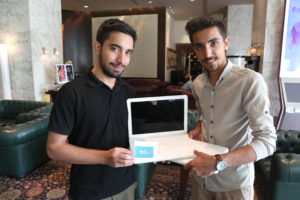 Two years ago, Madison Swanson recognized just this possibility. Then a senior at John Burroughs School in Saint Louis, Missouri, she was inspired by her experiences at THIMUN, and in particular, her interaction with the HELA (Hope in Education and Leadership in Afghanistan) delegation, to start Plug-in Model United Nations (PiMUN). The mission of PiMUN, according to Madison, is to “further the MUN education of students in less developed countries (LDC’s) by giving them access to used, fully-functional laptop computers.” The business model is fairly simple, yet effective. In its essence, PiMUN works as such: schools, businesses, organizations, and individuals who have technology for which they no longer have any use can have the devices’ memories wiped, then send them to PiMUN. From there, the devices will be sent to those in need. Former recipients of PiMUN devices include HELA, the first MUN delegation in Afghanistan, as well as Skateistan, a group who strives to “empower youth through skateboarding and education.”
Two years ago, Madison Swanson recognized just this possibility. Then a senior at John Burroughs School in Saint Louis, Missouri, she was inspired by her experiences at THIMUN, and in particular, her interaction with the HELA (Hope in Education and Leadership in Afghanistan) delegation, to start Plug-in Model United Nations (PiMUN). The mission of PiMUN, according to Madison, is to “further the MUN education of students in less developed countries (LDC’s) by giving them access to used, fully-functional laptop computers.” The business model is fairly simple, yet effective. In its essence, PiMUN works as such: schools, businesses, organizations, and individuals who have technology for which they no longer have any use can have the devices’ memories wiped, then send them to PiMUN. From there, the devices will be sent to those in need. Former recipients of PiMUN devices include HELA, the first MUN delegation in Afghanistan, as well as Skateistan, a group who strives to “empower youth through skateboarding and education.” 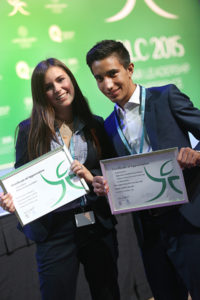 Madison and PiMUN embody what is great about MUN: it connects people. Whether these connections be emotional, intellectual, made in person, or made online, they work towards a global community working towards solutions to real world problems together. PiMUN allows students from all across the globe to confer via Skype, to chat about resolutions, breaking news, ideas, or just chat if they so please.
Madison and PiMUN embody what is great about MUN: it connects people. Whether these connections be emotional, intellectual, made in person, or made online, they work towards a global community working towards solutions to real world problems together. PiMUN allows students from all across the globe to confer via Skype, to chat about resolutions, breaking news, ideas, or just chat if they so please. 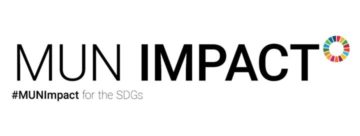
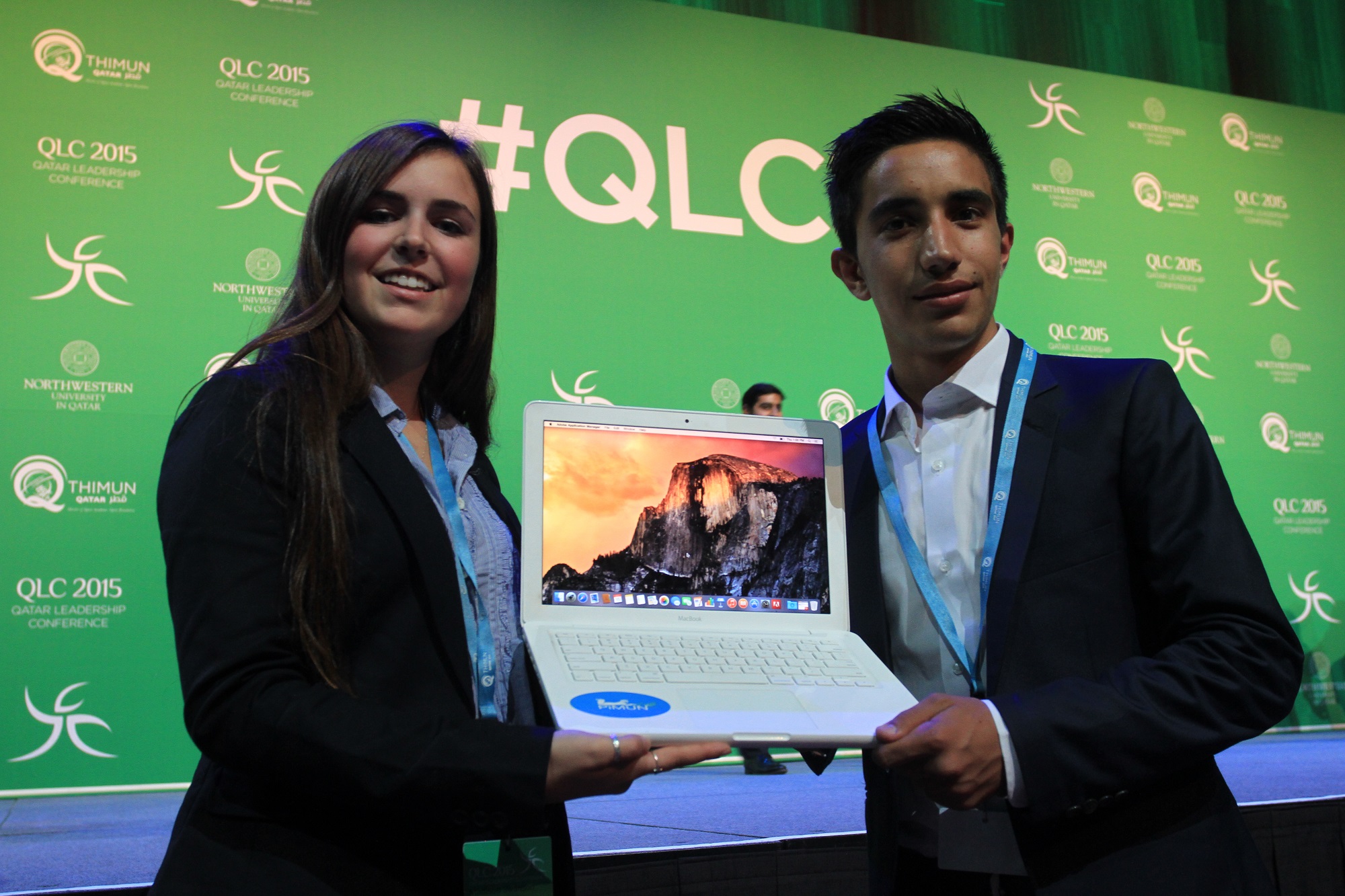
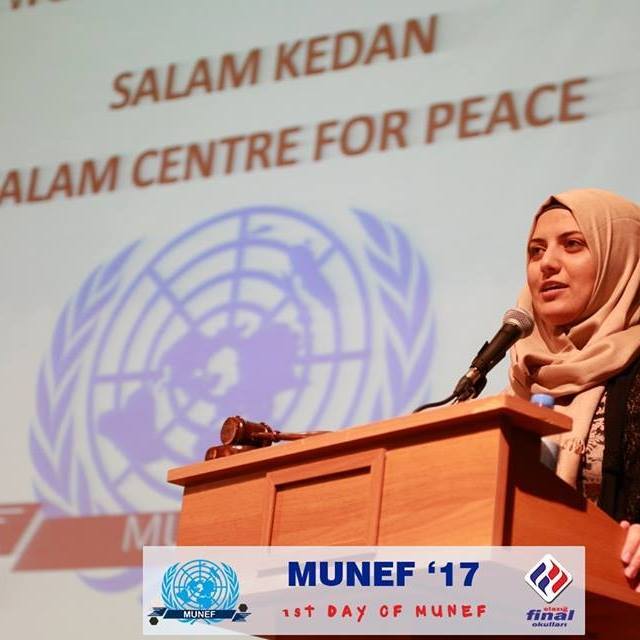
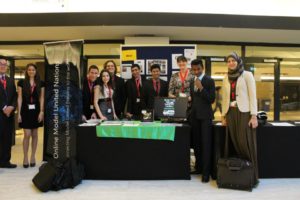 Often when I meet someone for the first time, they have no idea about my situation. We don’t have a voice, which is something I deeply believed needed to be changed. I started working with Online MUN as the Middle East and Africa Assistant Director. I then began to organize my own MUN travel teams, so that other students could have some of the same experiences I was having. I reached out to students from my community to travel and join international conferences-to have a stronger voice together. The first delegation I arranged with Online MUN was to THIMUN Qatar in 2014. I had two students from my community on the online team. Meeting and interacting with Arab and Muslim students was very interesting; both sides became more enlightened and knowledgeable about each other. My voice became more confident and story grew bigger in my community, and more students wanted to join. I’ve travelled with more than 20 students from my community to international MU N conferences. But I finally decided in 2016, along with the students that I had travelled with, to open our own organisation that would be aimed to raise awareness and connect students from all around the world. This was when we started Salam Centre for Peace, a non-profit organization based in my hometown of Baqa al Gharbiyye. We opened our Centre in September 2016.
Often when I meet someone for the first time, they have no idea about my situation. We don’t have a voice, which is something I deeply believed needed to be changed. I started working with Online MUN as the Middle East and Africa Assistant Director. I then began to organize my own MUN travel teams, so that other students could have some of the same experiences I was having. I reached out to students from my community to travel and join international conferences-to have a stronger voice together. The first delegation I arranged with Online MUN was to THIMUN Qatar in 2014. I had two students from my community on the online team. Meeting and interacting with Arab and Muslim students was very interesting; both sides became more enlightened and knowledgeable about each other. My voice became more confident and story grew bigger in my community, and more students wanted to join. I’ve travelled with more than 20 students from my community to international MU N conferences. But I finally decided in 2016, along with the students that I had travelled with, to open our own organisation that would be aimed to raise awareness and connect students from all around the world. This was when we started Salam Centre for Peace, a non-profit organization based in my hometown of Baqa al Gharbiyye. We opened our Centre in September 2016.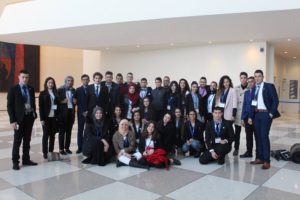 Ever since we established the organization, we have been able to send more than 80 students to international conferences under the name of the Salam Centre. It’s been a great success, and we are still trying to do more, to raise awareness about the SDGs in our community, to be active members of society, to empower the youth and encourage them to make a difference and to improve our living standards. We found that MUN conferences create some of the best environments for students to connect regardless of who they are. We are planning to host our own conferences soon, to welcome students from all around the world to come and meet us and see how life is for young people in our community, but how beautiful (and changeling) it can sometimes be.
Ever since we established the organization, we have been able to send more than 80 students to international conferences under the name of the Salam Centre. It’s been a great success, and we are still trying to do more, to raise awareness about the SDGs in our community, to be active members of society, to empower the youth and encourage them to make a difference and to improve our living standards. We found that MUN conferences create some of the best environments for students to connect regardless of who they are. We are planning to host our own conferences soon, to welcome students from all around the world to come and meet us and see how life is for young people in our community, but how beautiful (and changeling) it can sometimes be.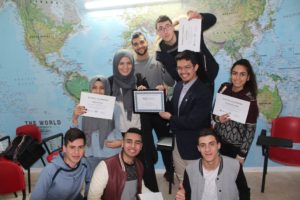 Joining MUN gave me a bigger purpose in my life and opened up many opportunities for me. Up until now I have joined more than 30 conferences. I have been invited to speak at seven international conferences as well as invited to join a meeting at the UN and represent my organization because of my experience with MUN. So all I can say now is that I am very grateful for all these opportunities that are now contributing to a much bigger difference. Grateful for meeting many inspirational people that inspired me to do more. To Ms Lisa Martin who always pushed me to do more from day one, who encouraged me to give my first speech at the Hague when I was shaking while delivering it. When I was extremely shy to even introduce myself to new people. So thank you very much! You made MUN impact me and my life the way it did. To Ryan Villanueva for the great summer course that taught me a lot about MUN, made me more confident, and for the inspiring conversations about MUN and its power. To Nabila Elassar for always being there and believing in me. To
Joining MUN gave me a bigger purpose in my life and opened up many opportunities for me. Up until now I have joined more than 30 conferences. I have been invited to speak at seven international conferences as well as invited to join a meeting at the UN and represent my organization because of my experience with MUN. So all I can say now is that I am very grateful for all these opportunities that are now contributing to a much bigger difference. Grateful for meeting many inspirational people that inspired me to do more. To Ms Lisa Martin who always pushed me to do more from day one, who encouraged me to give my first speech at the Hague when I was shaking while delivering it. When I was extremely shy to even introduce myself to new people. So thank you very much! You made MUN impact me and my life the way it did. To Ryan Villanueva for the great summer course that taught me a lot about MUN, made me more confident, and for the inspiring conversations about MUN and its power. To Nabila Elassar for always being there and believing in me. To 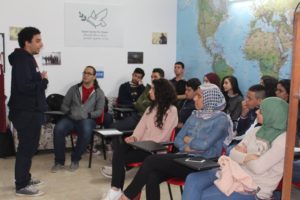 Ibrahim ElKazaz, for learning about my existence from my first presentation at QLC, then challenging the norms and volunteering to visit and teach MUN to students in our community. To Maryam and Alya for starting their own charity at such a young age for refugee women who were some of my biggest inspirations. To Rahmat, Suliman, Mursal… The list could go on and on to the many many more inspiring people that I met through MUN. All these interactions got me to where I am today, doing the work that I am doing
Ibrahim ElKazaz, for learning about my existence from my first presentation at QLC, then challenging the norms and volunteering to visit and teach MUN to students in our community. To Maryam and Alya for starting their own charity at such a young age for refugee women who were some of my biggest inspirations. To Rahmat, Suliman, Mursal… The list could go on and on to the many many more inspiring people that I met through MUN. All these interactions got me to where I am today, doing the work that I am doing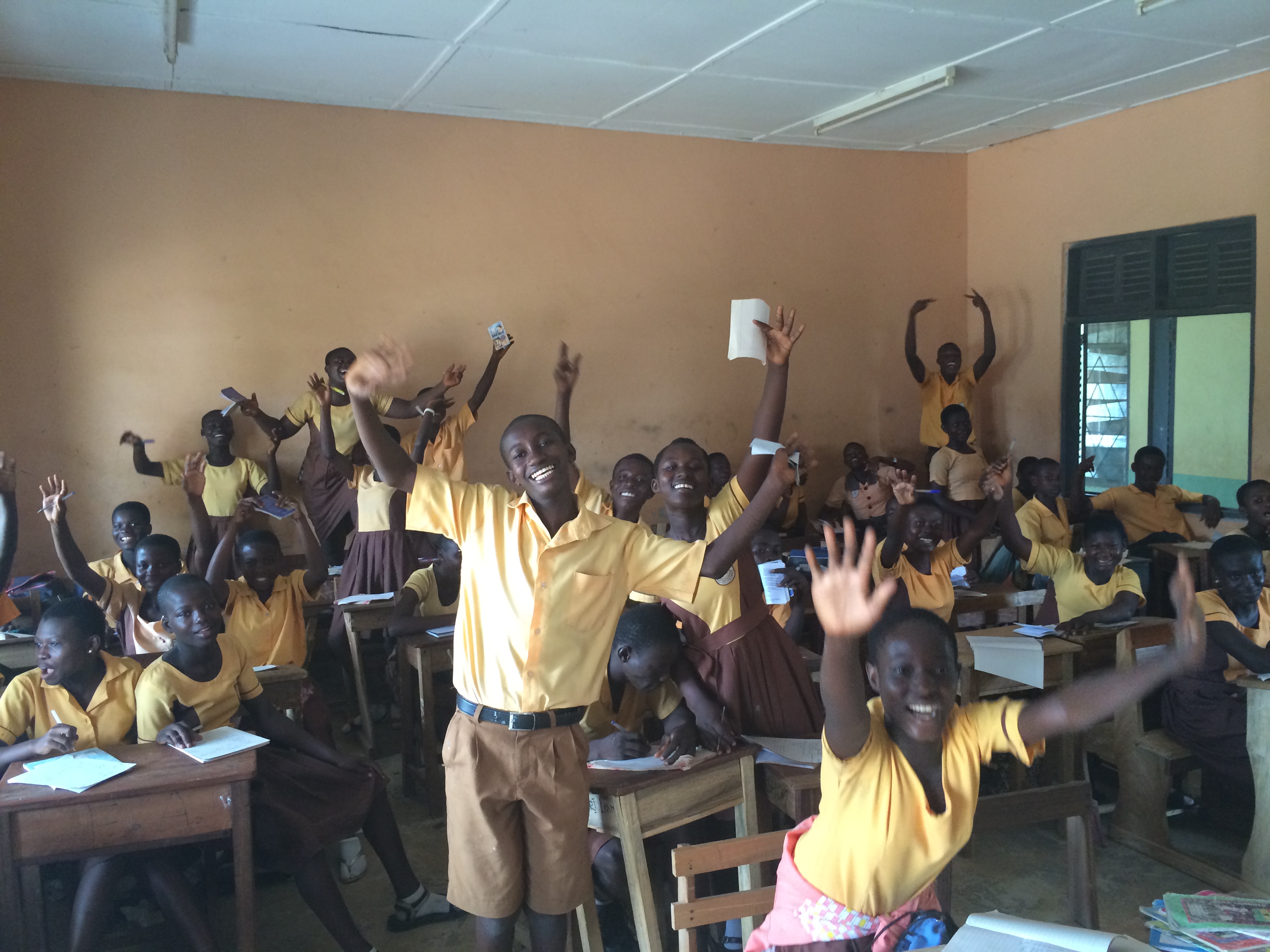
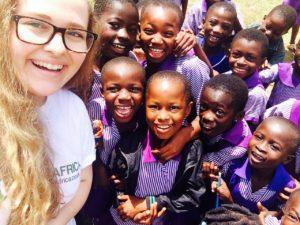
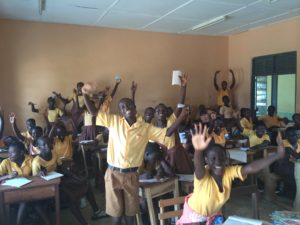 I’d be lying if I said the four weeks I spent in rural Ghana were easy. They weren’t. We all quickly realised that, with the twelve of us there, we’d need to cut down the numbers of showers to one per person per week, among other things. Yes – I know – that sounds ridiculously low. We were all having to move beyond the every day comfort we’d always taken for granted and realise that we were still luckier and in a better position than most people in the country. During my time there, I worked on developing children’s homes and providing environmental education. This experience gave me a once-in-a-lifetime opportunity to apply my MUN experience to real life, and, vitally, help sew the seed of environmental conservation to the indigenous community. I had thorough knowledge of the multilateral governance of these issues, gained through the many conferences I had attended, but helping local peoples become agents of their own success was truly a journey I’ll never forget. The impact you make by helping to empower even only a couple of people, is priceless, for it transcends time and will be passed down from one generation to the next.
I’d be lying if I said the four weeks I spent in rural Ghana were easy. They weren’t. We all quickly realised that, with the twelve of us there, we’d need to cut down the numbers of showers to one per person per week, among other things. Yes – I know – that sounds ridiculously low. We were all having to move beyond the every day comfort we’d always taken for granted and realise that we were still luckier and in a better position than most people in the country. During my time there, I worked on developing children’s homes and providing environmental education. This experience gave me a once-in-a-lifetime opportunity to apply my MUN experience to real life, and, vitally, help sew the seed of environmental conservation to the indigenous community. I had thorough knowledge of the multilateral governance of these issues, gained through the many conferences I had attended, but helping local peoples become agents of their own success was truly a journey I’ll never forget. The impact you make by helping to empower even only a couple of people, is priceless, for it transcends time and will be passed down from one generation to the next.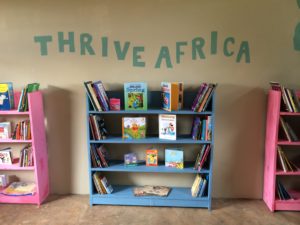 e ability to create vision; for the people, for the planet, for the future. Vision will drive you, and it’ll drive progress. As writer Jorge Luis Borges puts it, “wisdom lies neither in fixity nor in change, but in the dialectic between the two”; I kindly invite you to reflect on this. MUN will not give you answers, it will do better: it’ll teach you to ask yourself the right questions. I was once an insecure, doubtful, overwhelmed middle-schooler, but I was lucky enough to engage in MUN somewhere along the way, and it challenged my perspectives forever. I grew, not only as an individual but also as a leader, I became a curious mind and an engaged soul. Six years after attending my first ever MUN conference, I started an internship at the United Nations Environment Programme (UNEP) in Nairobi, Kenya. Isn’t it incredible how some things come full circle? Regardless of what happens now, I know my journey won’t stop here and I hope you know yours won’t either. This generation has so much to offer to the worlds of research, diplomacy and policy-making, if only we gave ourselves a chance to succeed. MUN already has.
e ability to create vision; for the people, for the planet, for the future. Vision will drive you, and it’ll drive progress. As writer Jorge Luis Borges puts it, “wisdom lies neither in fixity nor in change, but in the dialectic between the two”; I kindly invite you to reflect on this. MUN will not give you answers, it will do better: it’ll teach you to ask yourself the right questions. I was once an insecure, doubtful, overwhelmed middle-schooler, but I was lucky enough to engage in MUN somewhere along the way, and it challenged my perspectives forever. I grew, not only as an individual but also as a leader, I became a curious mind and an engaged soul. Six years after attending my first ever MUN conference, I started an internship at the United Nations Environment Programme (UNEP) in Nairobi, Kenya. Isn’t it incredible how some things come full circle? Regardless of what happens now, I know my journey won’t stop here and I hope you know yours won’t either. This generation has so much to offer to the worlds of research, diplomacy and policy-making, if only we gave ourselves a chance to succeed. MUN already has.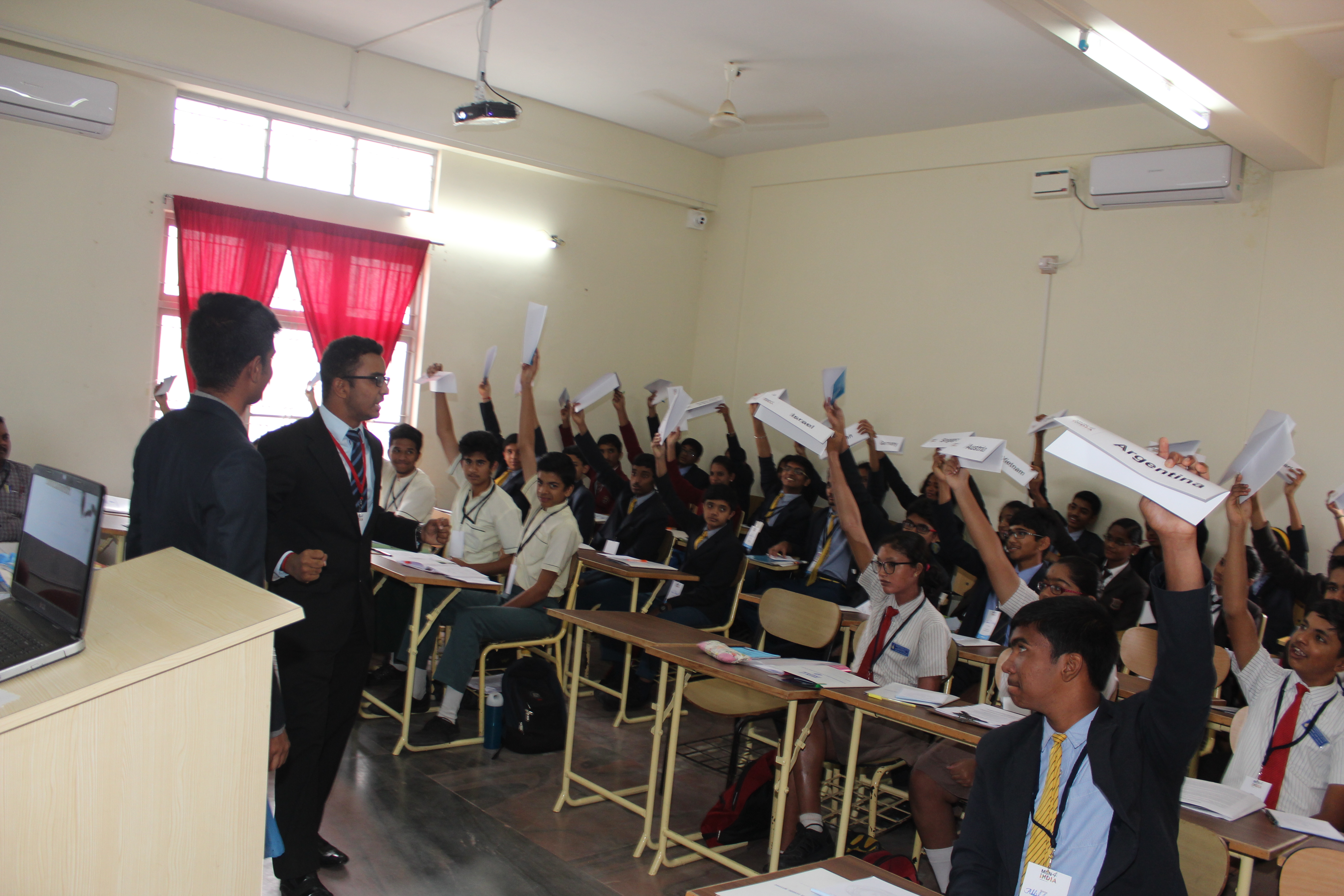

 Finally, the explosion of Model UN has also meant that more and more delegates, faculty, schools and even parents, now view Model UN as a checklist item on students’ profiles and do not, instead, focus on the students’ growth and learning. Many students attend over 10 conferences each year in an attempt to outdo their peers, but few truly use the platform as a stepping stone.
Finally, the explosion of Model UN has also meant that more and more delegates, faculty, schools and even parents, now view Model UN as a checklist item on students’ profiles and do not, instead, focus on the students’ growth and learning. Many students attend over 10 conferences each year in an attempt to outdo their peers, but few truly use the platform as a stepping stone. This initiative represents a radical shift in Model UN for India in that it is focused on empowering delegates, faculty members, parents and schools by providing knowledge leadership and learning resources, while building a new generation of delegates who view Model UN for what it is: a learning platform to improve one’s skills and awareness, share ideas and knowledge, build innovative solutions, and create a positive impact.
This initiative represents a radical shift in Model UN for India in that it is focused on empowering delegates, faculty members, parents and schools by providing knowledge leadership and learning resources, while building a new generation of delegates who view Model UN for what it is: a learning platform to improve one’s skills and awareness, share ideas and knowledge, build innovative solutions, and create a positive impact.  The response from delegates, faculty and schools for the initiative has been overwhelming, and the host schools have been extremely supportive of the vision, committing not only their resources but also, and more importantly, their time to in elevating the overall experience. The scope for such an initiative is vast, and seemingly unlimited, as it travels to different cities across the country, producing in its wake, a new generation of delegates and kick-starting a bottom-up movement in the ecosystem to refocus Model UN to its core objective: positive impact through people development.
The response from delegates, faculty and schools for the initiative has been overwhelming, and the host schools have been extremely supportive of the vision, committing not only their resources but also, and more importantly, their time to in elevating the overall experience. The scope for such an initiative is vast, and seemingly unlimited, as it travels to different cities across the country, producing in its wake, a new generation of delegates and kick-starting a bottom-up movement in the ecosystem to refocus Model UN to its core objective: positive impact through people development.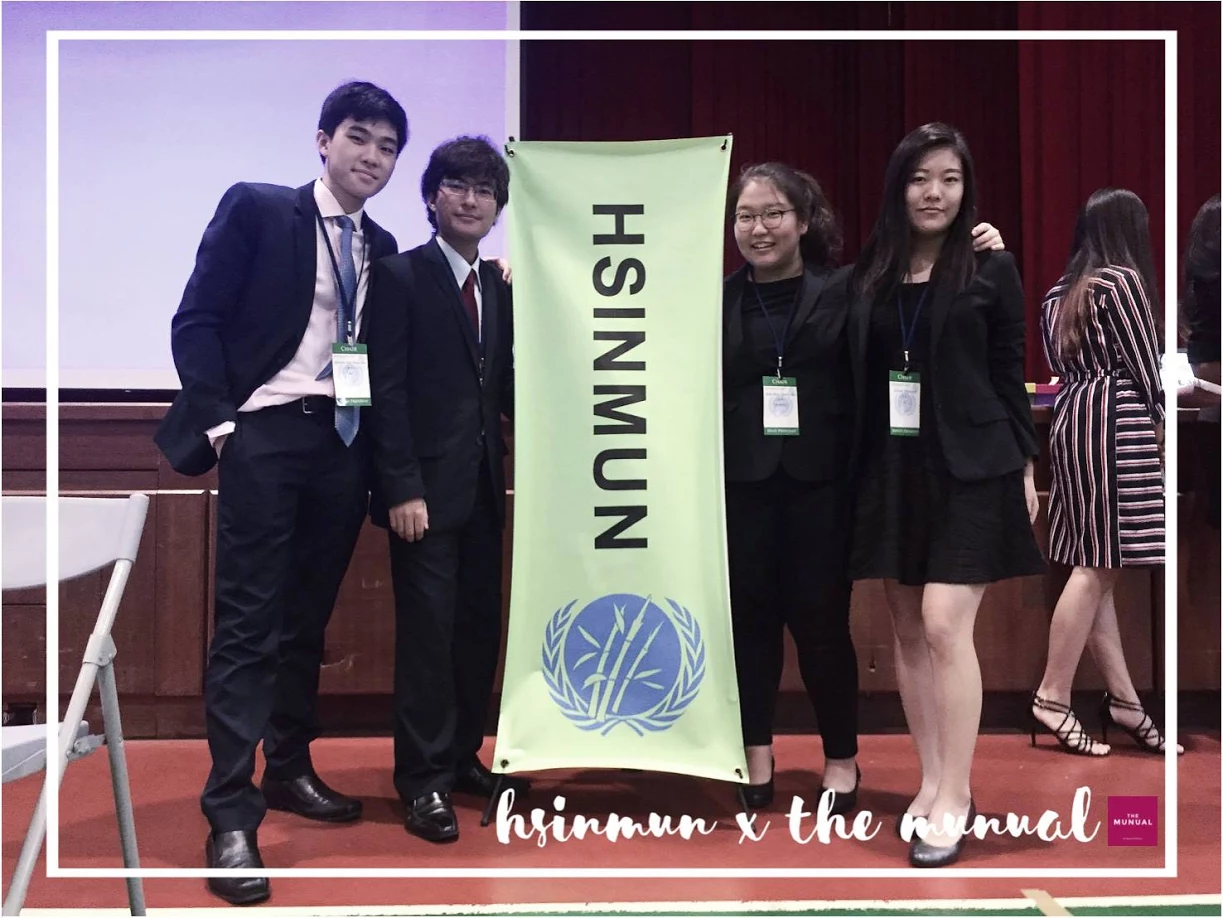

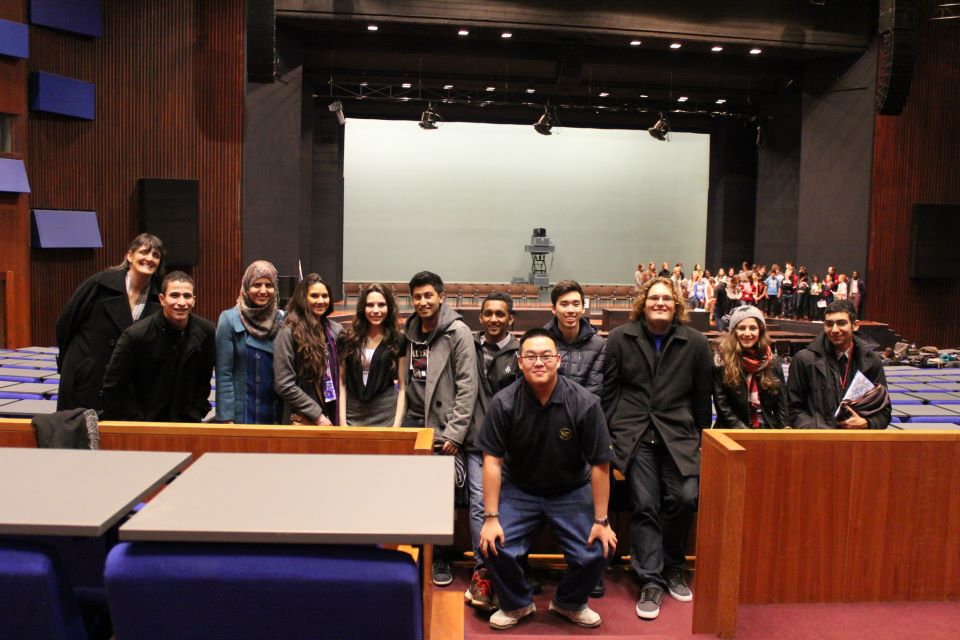
 In International Relations 101, students learn three different perspectives, worldviews or theories that are differentiated based on who plays the game. In realism, states are the main actors and agents that dominate the discourse. In liberalism, states and organizations share that realm. In constructivism, that level goes even further allowing individuals to have agency as well. Ever since I began studying IR, I’ve been always drawn to the constructivist theory as I recognize how individuals make a difference in the world as well as in my life. In this MUNImpact story, I want to share how certain individuals in my life made a difference, and led me down the career path that I’m on today.
In International Relations 101, students learn three different perspectives, worldviews or theories that are differentiated based on who plays the game. In realism, states are the main actors and agents that dominate the discourse. In liberalism, states and organizations share that realm. In constructivism, that level goes even further allowing individuals to have agency as well. Ever since I began studying IR, I’ve been always drawn to the constructivist theory as I recognize how individuals make a difference in the world as well as in my life. In this MUNImpact story, I want to share how certain individuals in my life made a difference, and led me down the career path that I’m on today.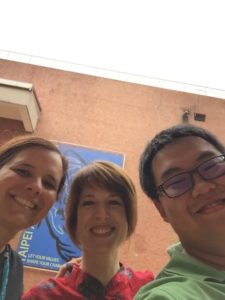
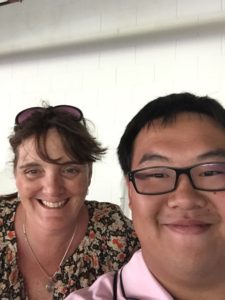
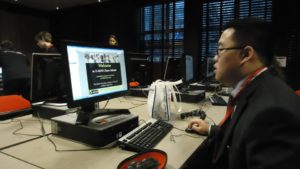 I’ve often said that I’ve known that I wanted to be a teacher since middle school and that sentiment is true. However, I feel like I would be a very different teacher than I am now without those three individuals in my life. I’ve had the opportunity to mentor and work with students throughout my high school and college career and I constantly look to my mentors for inspiration and advice. My story is very much indicative of those who were there to shape me into the person I am today.
I’ve often said that I’ve known that I wanted to be a teacher since middle school and that sentiment is true. However, I feel like I would be a very different teacher than I am now without those three individuals in my life. I’ve had the opportunity to mentor and work with students throughout my high school and college career and I constantly look to my mentors for inspiration and advice. My story is very much indicative of those who were there to shape me into the person I am today. The beauty of MUN is that it pushes students, adults, members of a greater community to strive to make an impact in the world they live in, whether as delegates, problem-solvers, activists, educators and more. MUN has made a huge impact on my life, but it is really the individuals behind the conferences, the classes and the debates that have cemented my drive to be like them. It is my goal, to make a similar impact on my students, to allow them to share their story of how MUN has changed their lives. Years ago, I was a naive student who walked into a room with 15 or so other nerds looking to change the world. Today, I’m a Masters candidate at Tufts University for my teaching degree in High School Social Studies, excited to change the world, one student at a time. That’s my MUNImpact.
The beauty of MUN is that it pushes students, adults, members of a greater community to strive to make an impact in the world they live in, whether as delegates, problem-solvers, activists, educators and more. MUN has made a huge impact on my life, but it is really the individuals behind the conferences, the classes and the debates that have cemented my drive to be like them. It is my goal, to make a similar impact on my students, to allow them to share their story of how MUN has changed their lives. Years ago, I was a naive student who walked into a room with 15 or so other nerds looking to change the world. Today, I’m a Masters candidate at Tufts University for my teaching degree in High School Social Studies, excited to change the world, one student at a time. That’s my MUNImpact.